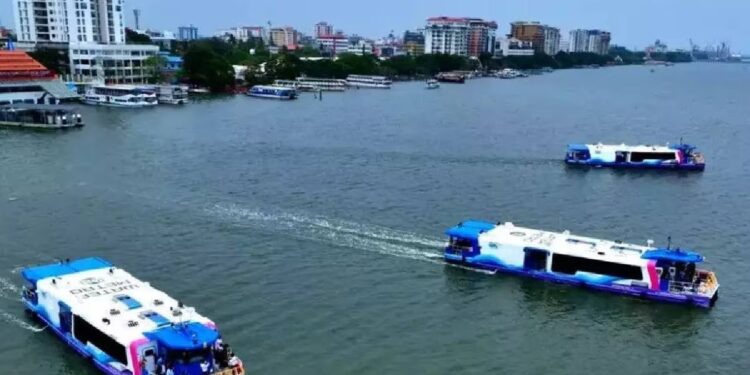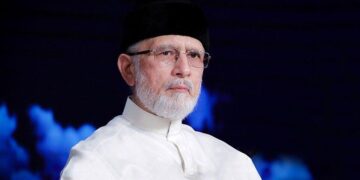– How has the Ministry of Ports, Shipping and Waterways (MoPSW) supported the expansion of successful water transport infrastructure?
Expanding Water Metro Success: Kochi’s Model to Inspire Kolkata, Mumbai, Guwahati, and Goa, Says MoPSW
India’s Ministry of Ports, Shipping and Waterways (MoPSW) has identified Kochi’s Water Metro project as a shining example of successful water transport infrastructure that can be emulated in other major cities across the country. The Water Metro project in Kochi has not only improved the city’s transportation network but also contributed to reducing congestion, pollution, and carbon emissions. Inspired by its success, MoPSW is encouraging cities like Kolkata, Mumbai, Guwahati, and Goa to consider similar water transport systems to address their growing urban mobility challenges.
Kochi’s Water Metro Project Overview
The Water Metro project in Kochi, launched in 2020, is an integrated water transport system that connects various islands in the city through a network of modern ferries. The project aims to provide a reliable and efficient mode of transport for both residents and tourists, reducing travel time and congestion on the city’s roads. With 38 ferries operating on 15 different routes, the Water Metro has quickly become a preferred mode of transportation for many commuters in Kochi.
Key Features of Kochi’s Water Metro Project
- Integration with other modes of transport like buses and metro
- Modern and environmentally friendly ferries with low carbon emissions
- Accessible boarding points and terminals for passengers
- Real-time tracking and information systems for commuters
- Affordable ticketing system and convenient payment options
Benefits of Water Metro Systems
Implementing water transport systems like the Water Metro can offer a range of benefits for cities facing urban mobility challenges:
- Reduction in road congestion and travel times
- Lower carbon emissions and pollution levels
- Improved connectivity between different parts of the city
- Enhanced tourism and economic development opportunities
- Increased resilience to climate change and natural disasters
Case Studies: Cities Exploring Water Transport Solutions
Several Indian cities are exploring the possibility of implementing water transport systems similar to Kochi’s Water Metro:
| City | Proposed Water Transport System |
|---|---|
| Kolkata | Planning a network of river ferries on the Hooghly River |
| Mumbai | Investigating the feasibility of water taxis and ferries along the coast |
| Guwahati | Considering water transport options on the Brahmaputra River |
| Goa | Exploring water transport systems to connect coastal areas |
Practical Tips for Implementing Water Transport Systems
- Conducting feasibility studies and stakeholder consultations
- Investing in modern and eco-friendly ferry fleets
- Developing integrated ticketing and information systems
- Ensuring accessibility and safety for all passengers
- Promoting public awareness and education on the benefits of water transport
With the success of Kochi’s Water Metro as a model, other Indian cities have a valuable example to follow in their efforts to improve urban transportation and sustainability. By investing in water transport systems, cities can create more efficient, environmentally friendly, and inclusive mobility solutions for their residents and visitors.
Exploring the Potential of the Kochi Water Metro Model in Various Indian Locations
A senior official from the Ministry of Ports, Shipping, and Waterways (MoPSW) recently mentioned the possibility of replicating the successful Kochi Water Metro model in cities like Kolkata, Mumbai, Guwahati, and Goa. This statement came after a productive review meeting of the State Maritime & Waterways Transport Committee (SMWTC).
During the virtual gathering, overseen by MoPSW Secretary T K Ramachandran, representatives from approximately 30 states and Union Territories convened to discuss strategies for the holistic development of maritime and waterways transportation throughout the country.
Celebrating its first year of operations on April 25, 2024, the Kochi Water Metro has brought a revolutionary transformation to the water transport sector in Kerala. The success of this initiative has sparked interest in implementing similar projects in other parts of India.
Ramachandran also emphasized the importance of initiatives like the Sagarmala Programme and the National Maritime Heritage Complex (NMHC) at Lothal in bolstering India’s maritime heritage and infrastructure.
Notably, SMWTCs have already been established in 13 states, including Andhra Pradesh, Mizoram, Himachal Pradesh, Nagaland, Puducherry, Rajasthan, Bihar, Assam, Goa, Kerala, Uttar Pradesh, Maharashtra, and Lakshadweep. Plans are underway to set up such committees in all 30 coastal and waterways states and Union Territories across the country.















